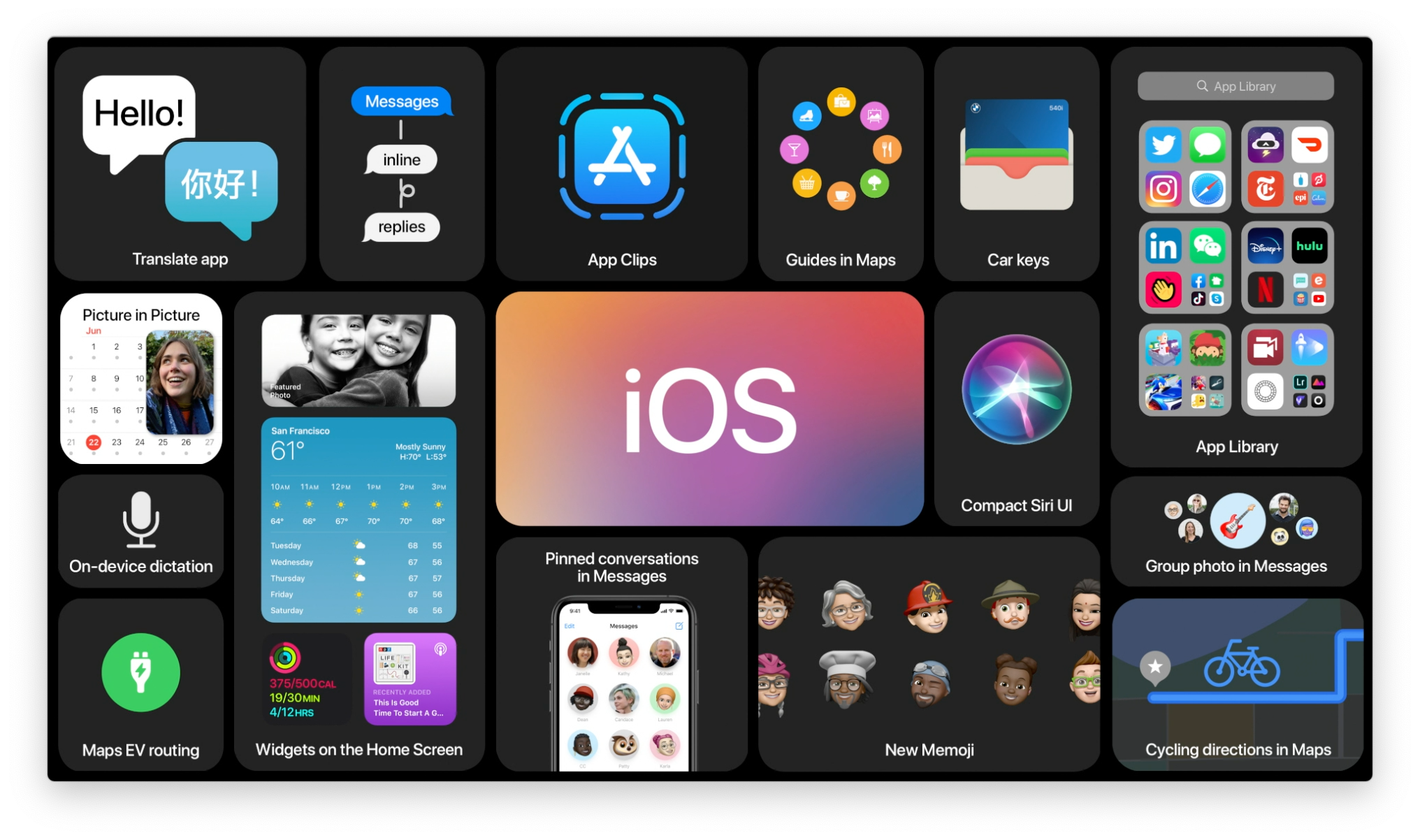Stocks App: The ultimate guide
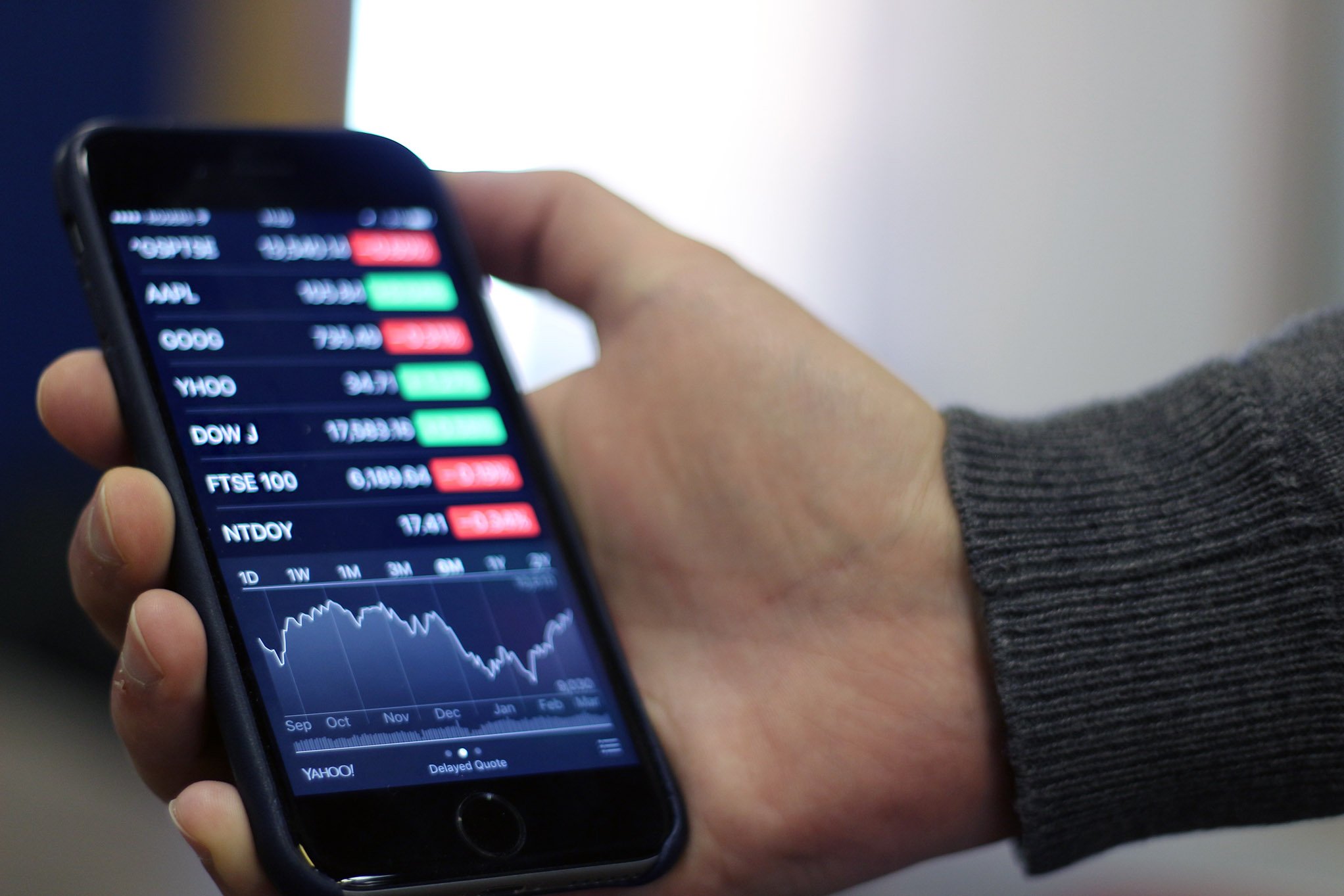
Apple's built-in Stocks app lets you keep track of everything in your portfolio right on your iPhone. You can check individual stocks and exchanges, see openings, highs, lows, volume, P/E, news, and see graphs from one day to two years. If you don't want to tap your way through the Stocks app, you can even ask Siri to check the numbers for you!
- How to add stocks for iPhone
- How to rearrange stocks for iPhone
- How to delete stocks on iPhone
- How to view stocks on iPhone
- How to view trends over time
- How to manage Stocks notifications on iPhone
- How to check on individual stocks with Siri
- How to check stock exchanges with Siri
- How to check on individual stocks with Siri
- How to check stock exchanges with Siri
- How to delete the Stocks app from your iPhone
- How to check business news in the Stocks app
How to add stocks to Stocks for iPhone
- Launch the Stocks app from your Home screen.
- Tap on the menu button in the bottom right corner.
- Tap on the plus sign (+) in the top left corner.
- Type in the name of a stock you would like to follow (I chose Nintendo).
- Tap on the green add button next to the stock you want to follow.
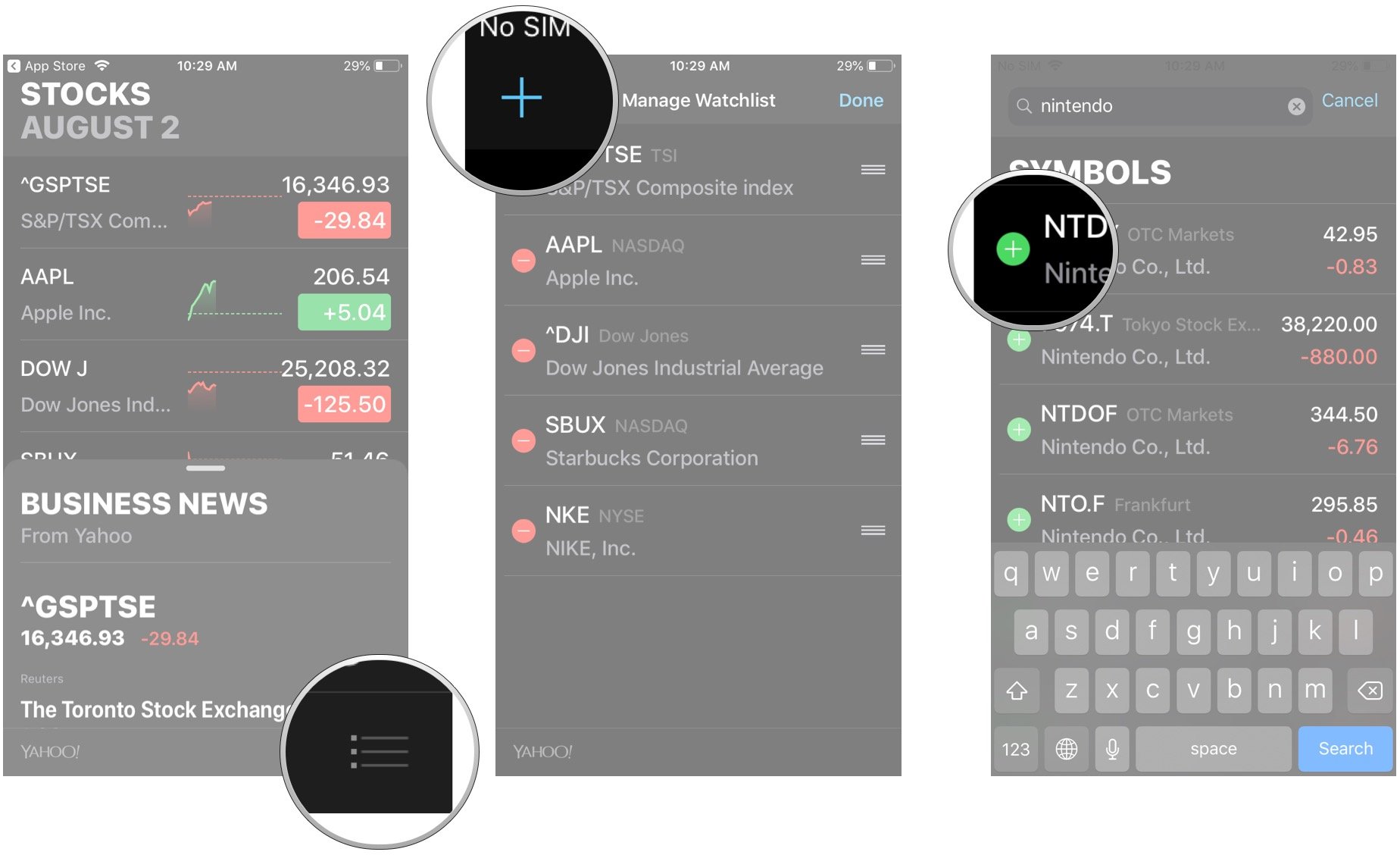
How to rearrange stocks on iPhone
- Launch the Stocks app from your Home screen.
- Tap the menu button in the bottom right corner.
- Tap and hold the Reorder button next to the stock you want to rearrange.
- Drag your finger up or down the screen until your stock appears in the spot you want to place it.
- Release to rearrange the stock.
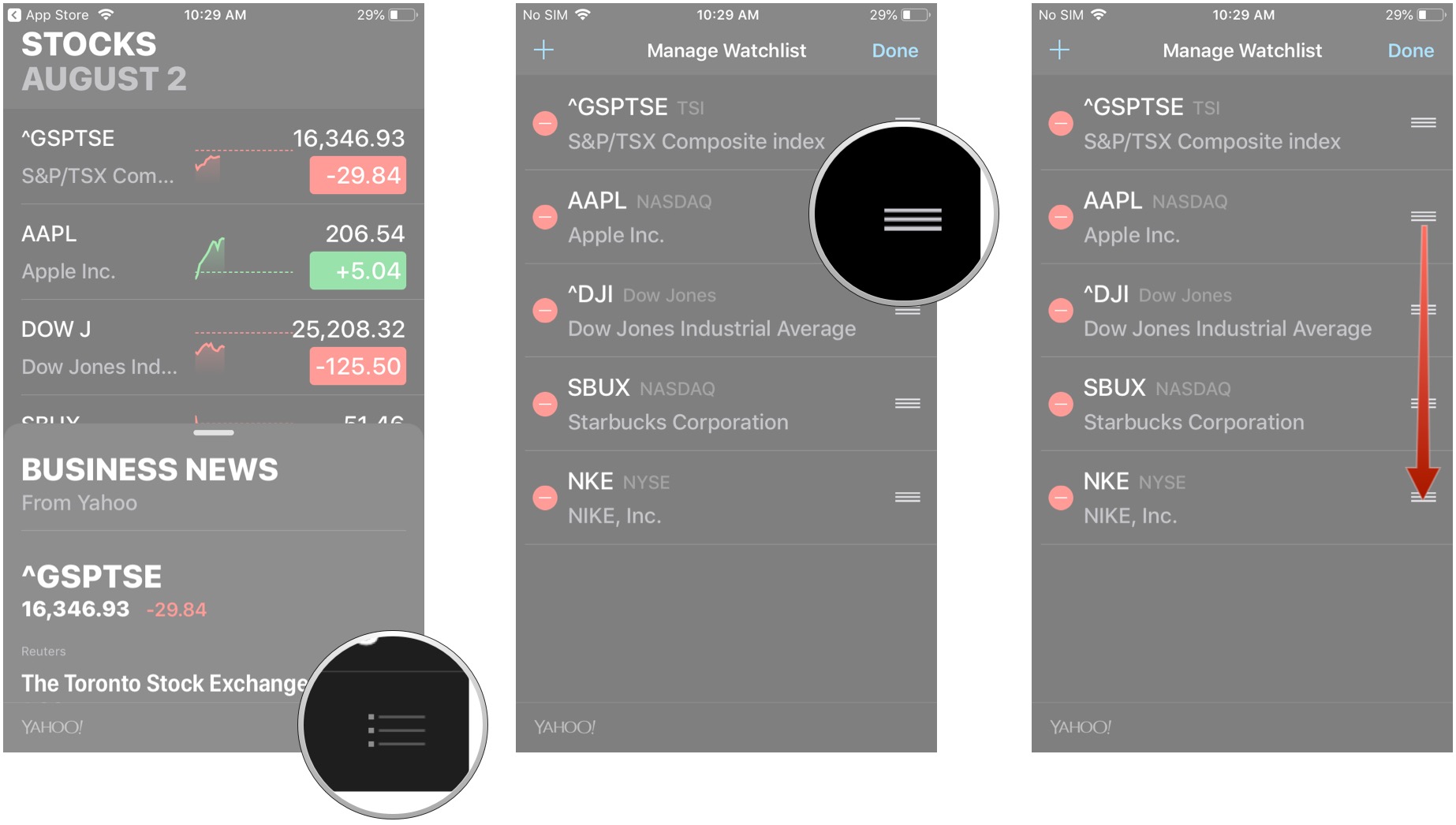
How to delete stocks on iPhone
- Launch the Stocks app from your Home screen.
- Tap the menu button in the bottom right corner.
- Tap the delete button next to the stock you want to remove. It's the red circle with the minus symbol in it.
- Tap Remove.
- Tap Done in the top right corner when you've deleted all the stocks you want to delete.
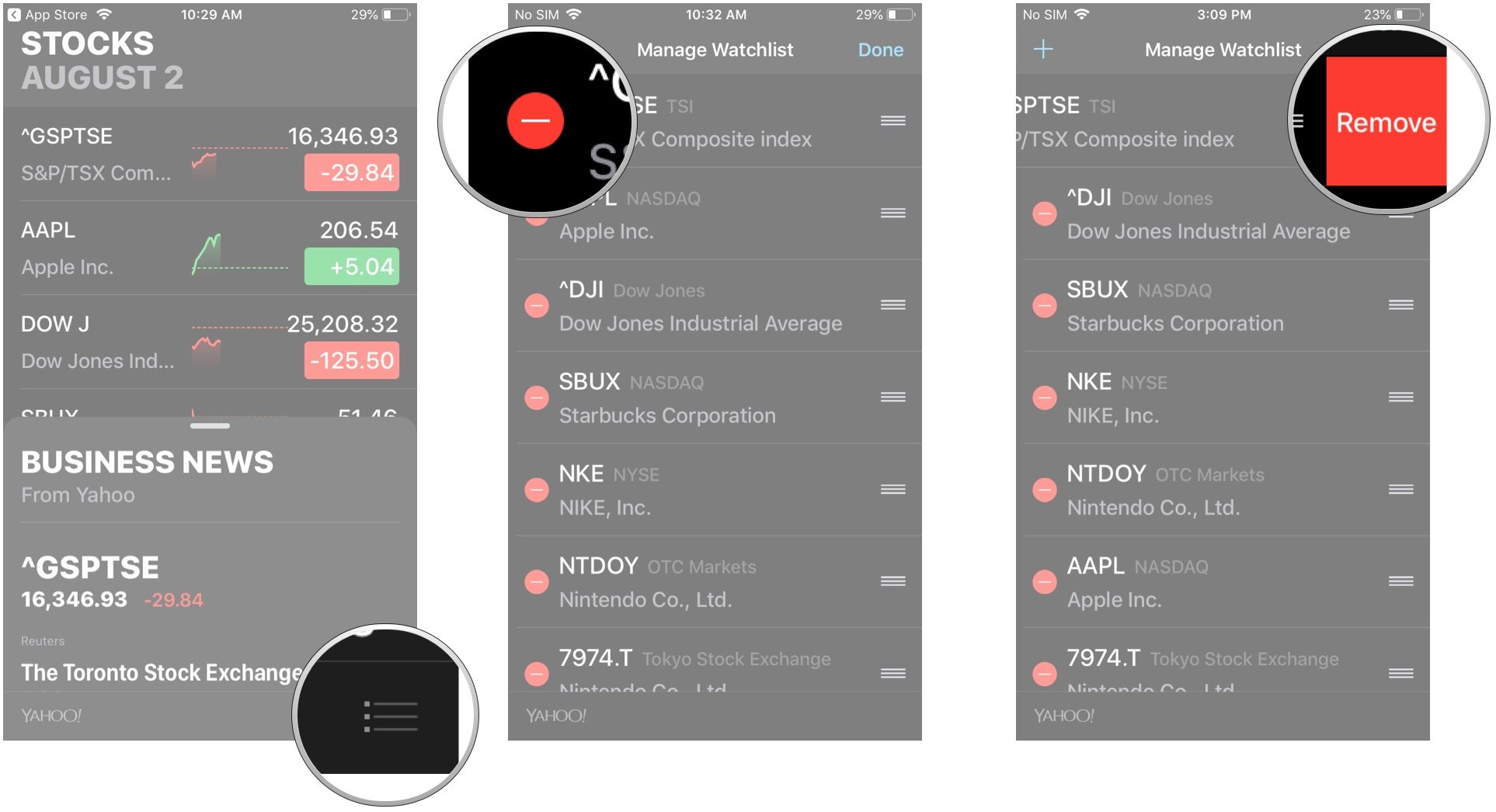
You can always re-add stocks later on.
How to change stock units on iPhone
Do you prefer to see your stock changes as a percentage, price difference, or do you want to view the market cap? Customize the way you track stocks using the default Stocks App on iOS.
- Launch the Stocks app from your Home screen.
- Tap on the values next to each stock. You can switch from percentages to dollar amounts to price difference.
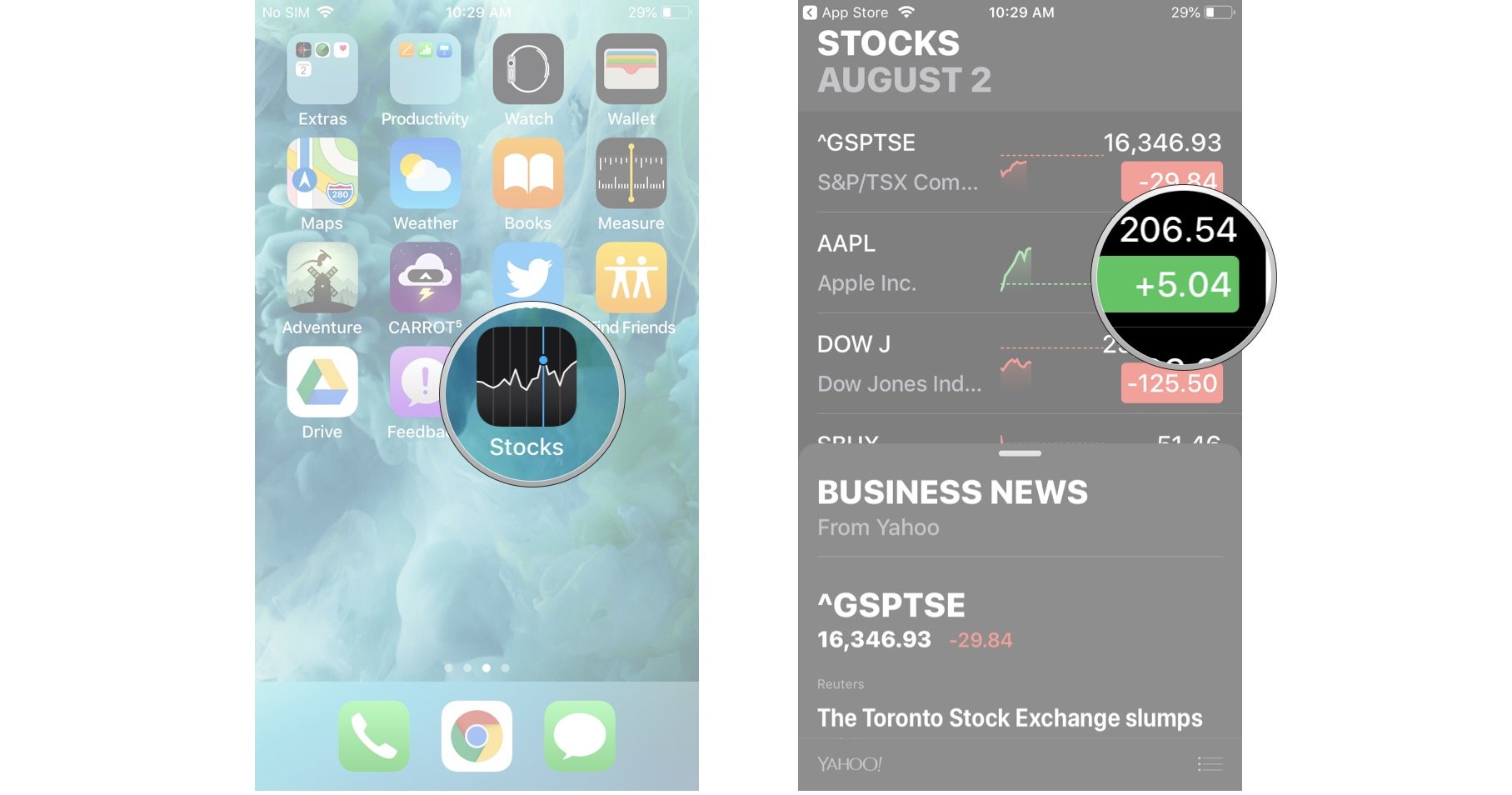
Each tap will allow you to switch what information you see in the main Stocks dashboard. Additional taps will switch between displaying the marketcap, percentage, and price.
How to view trends over time
iOS 12 is bringing interactive graphs into the fold, and you'll be able to check a stock's progress over the last day, week, month, quarter, six months, year, or two years.
- Launch Stocks from your Home screen.
- Tap a stock.
- Tap a time period underneath the stock name. You have 1 day, 1 week, 1 month, 3 months, 6 months, 1 year, or 2 years.
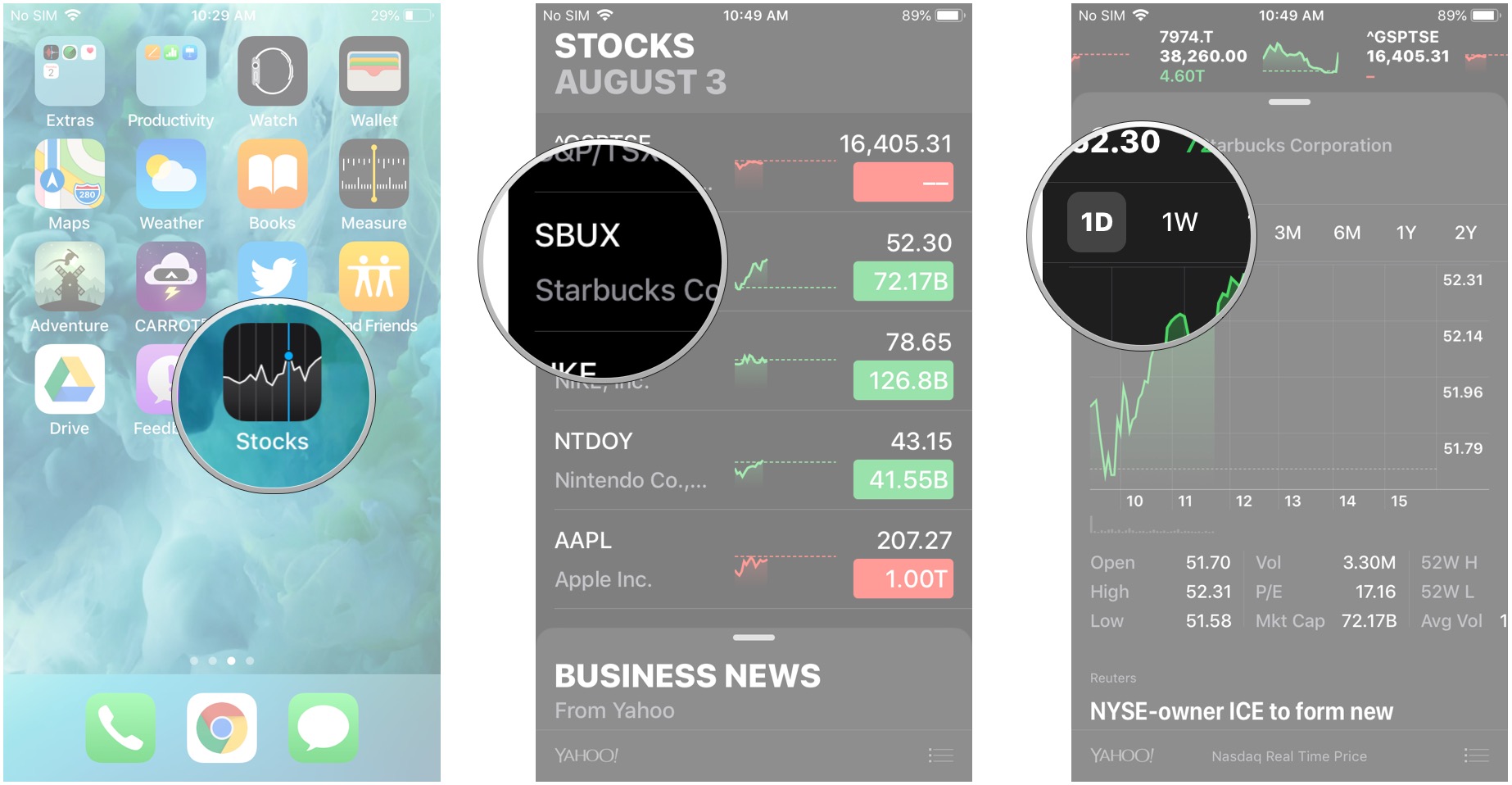
How to add Stocks to Today on iPhone
Want a quick summary of your daily stocks without opening the app? Add the Stocks widget to your Today view.
- Swipe down from the top of your Home screen.
- Swipe right on the Notifications screen.
- Tap on the edit button at the bottom.
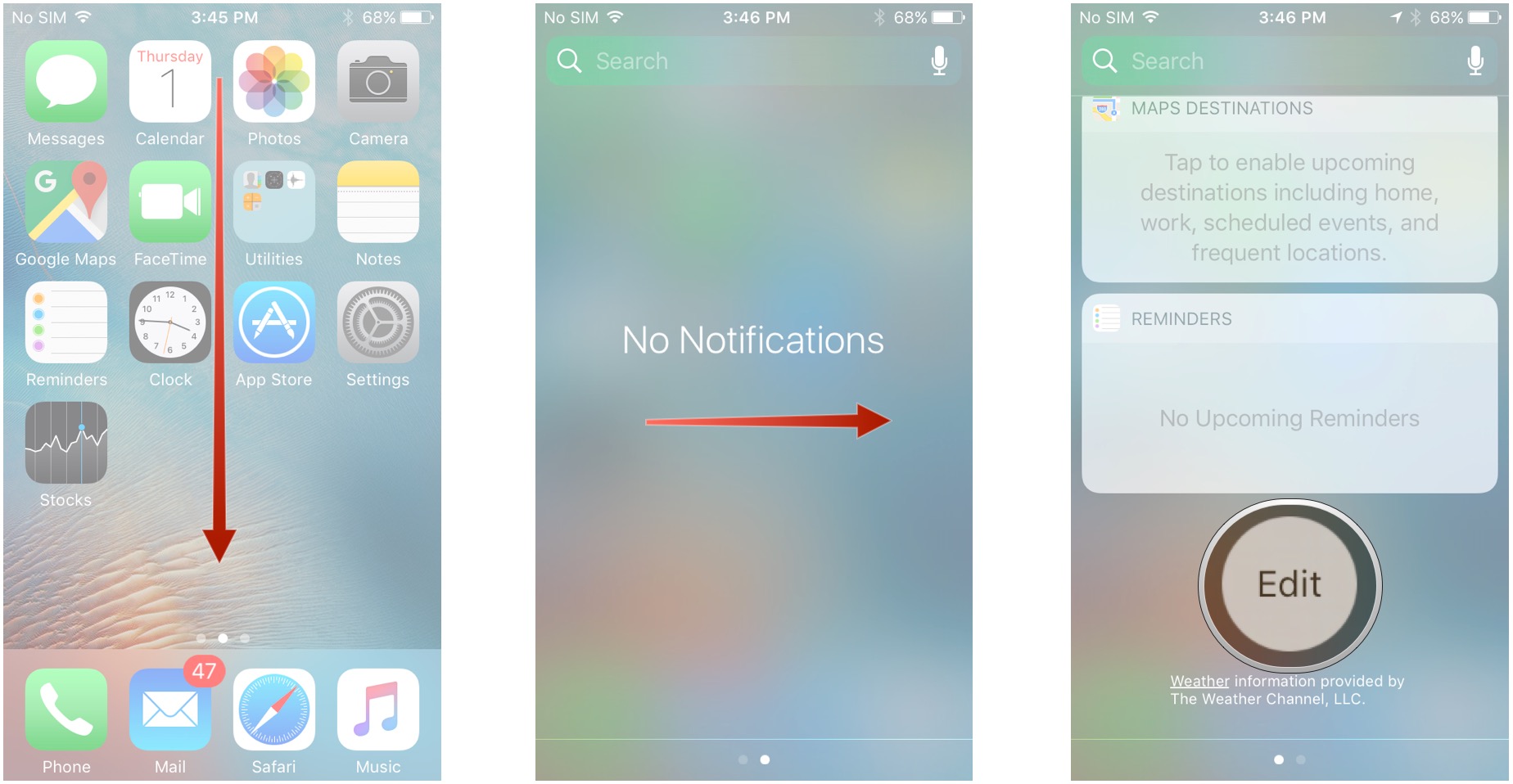
- Tap on the plus sign next to stocks to add it to your notification centre.
- Tap on done to save.
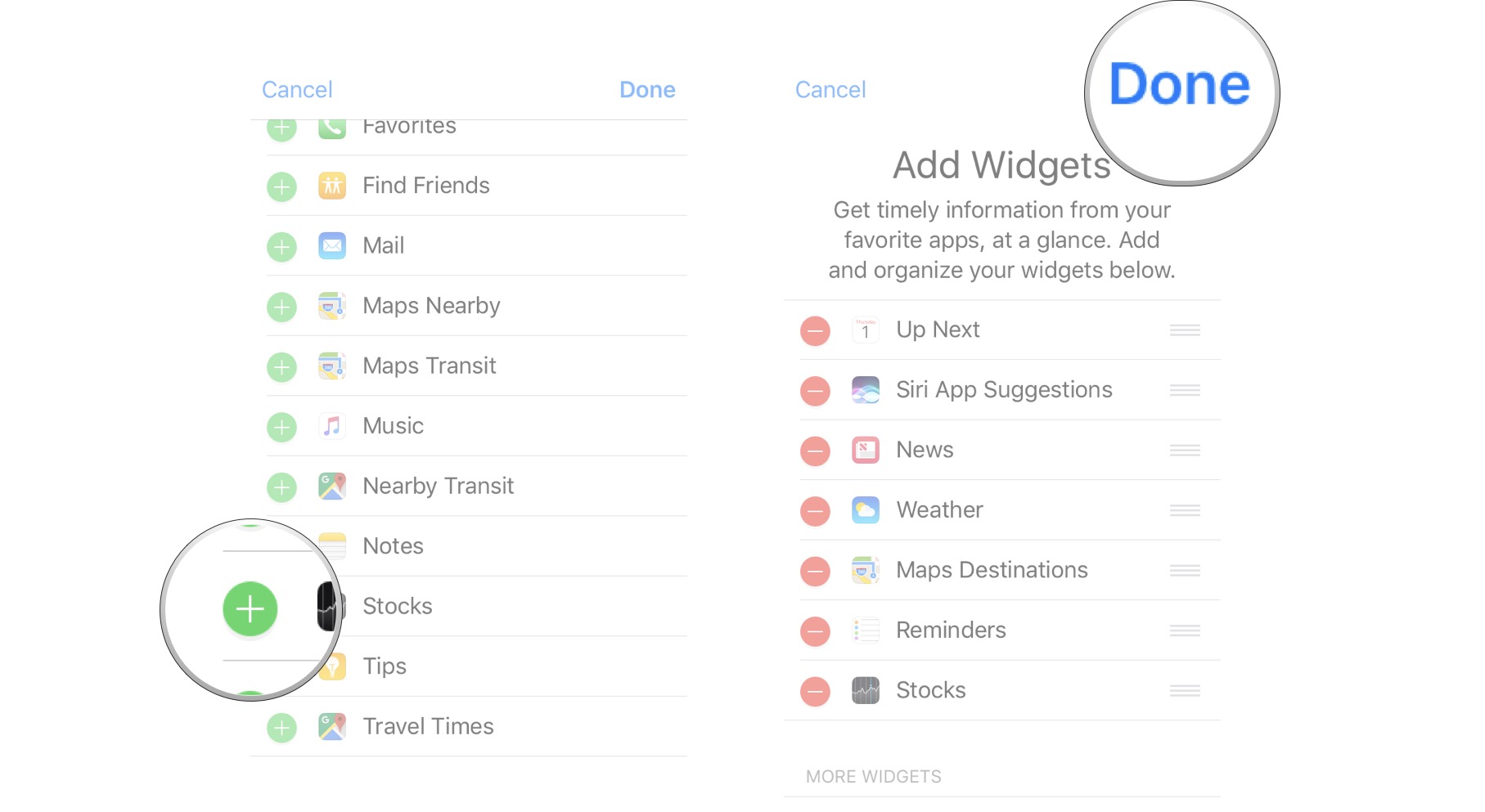
Tired of seeing those stock summaries in your notification center? No problem! It's easy to remove them!
Master your iPhone in minutes
iMore offers spot-on advice and guidance from our team of experts, with decades of Apple device experience to lean on. Learn more with iMore!
- Swipe down from the top of your Home screen.
- Swipe right on the Notifications screen.
- Tap on the edit button at the bottom of your notification screen (depending on how many notifications you have, you might have to scroll down to find this button).
- Tap on the minus sign next to stocks to remove it from your notification center.
- Tap Remove.
- Tap on Done to save.
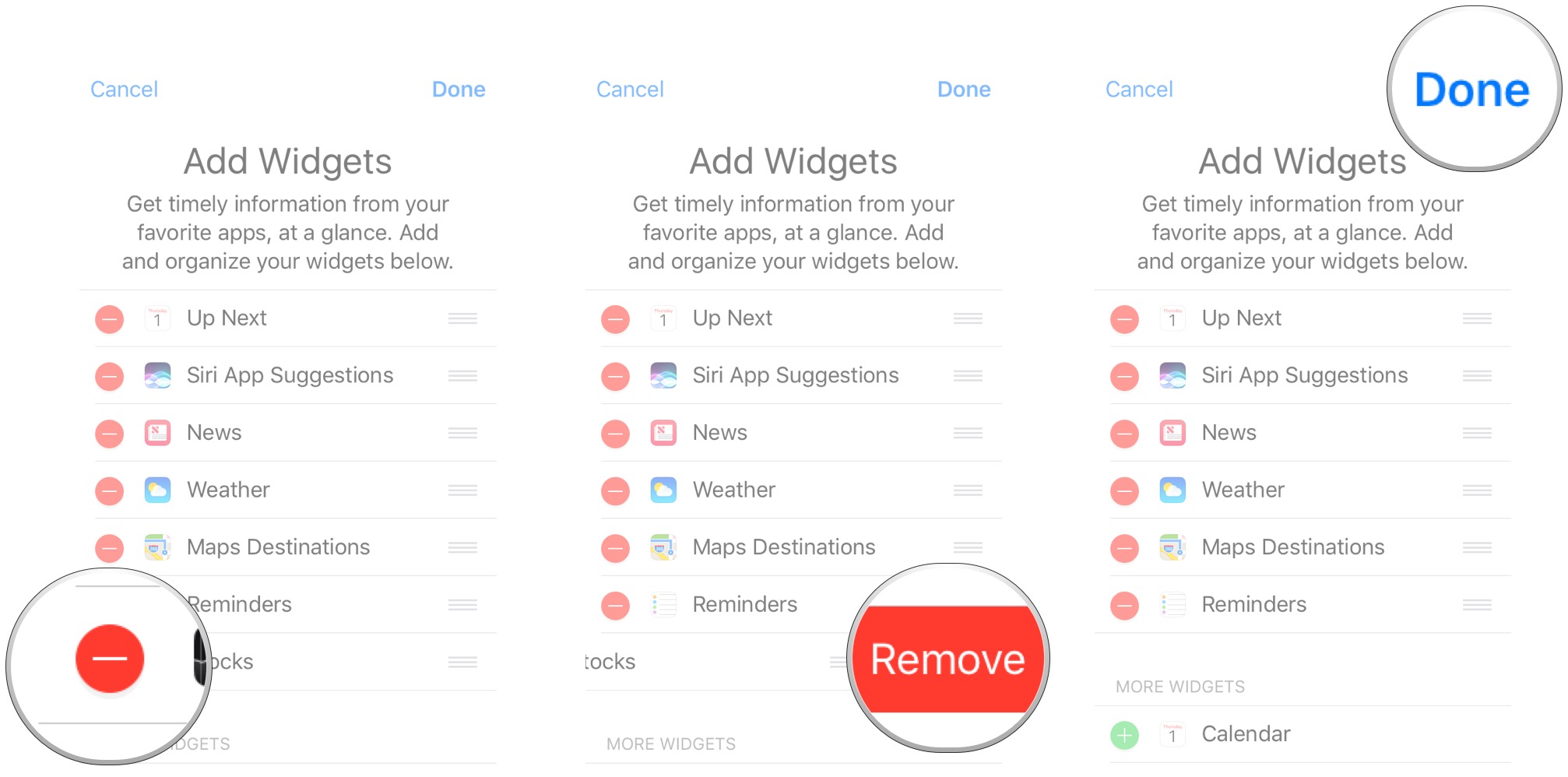
How to check individual stocks with Siri
If you want quick stock info and it's not convenient to type, strike up a chat with Siri and have her find the market info for you!
- Say Hey Siri or press and hold the Home button to launch Siri.
- Say something like "What is Apple's stock at today?" or "Show me stock information for Google."
- Siri will then show you an overview of the particular stock you asked about. Tap anywhere in the stock widget to be taken to the built-in Stocks app for more information
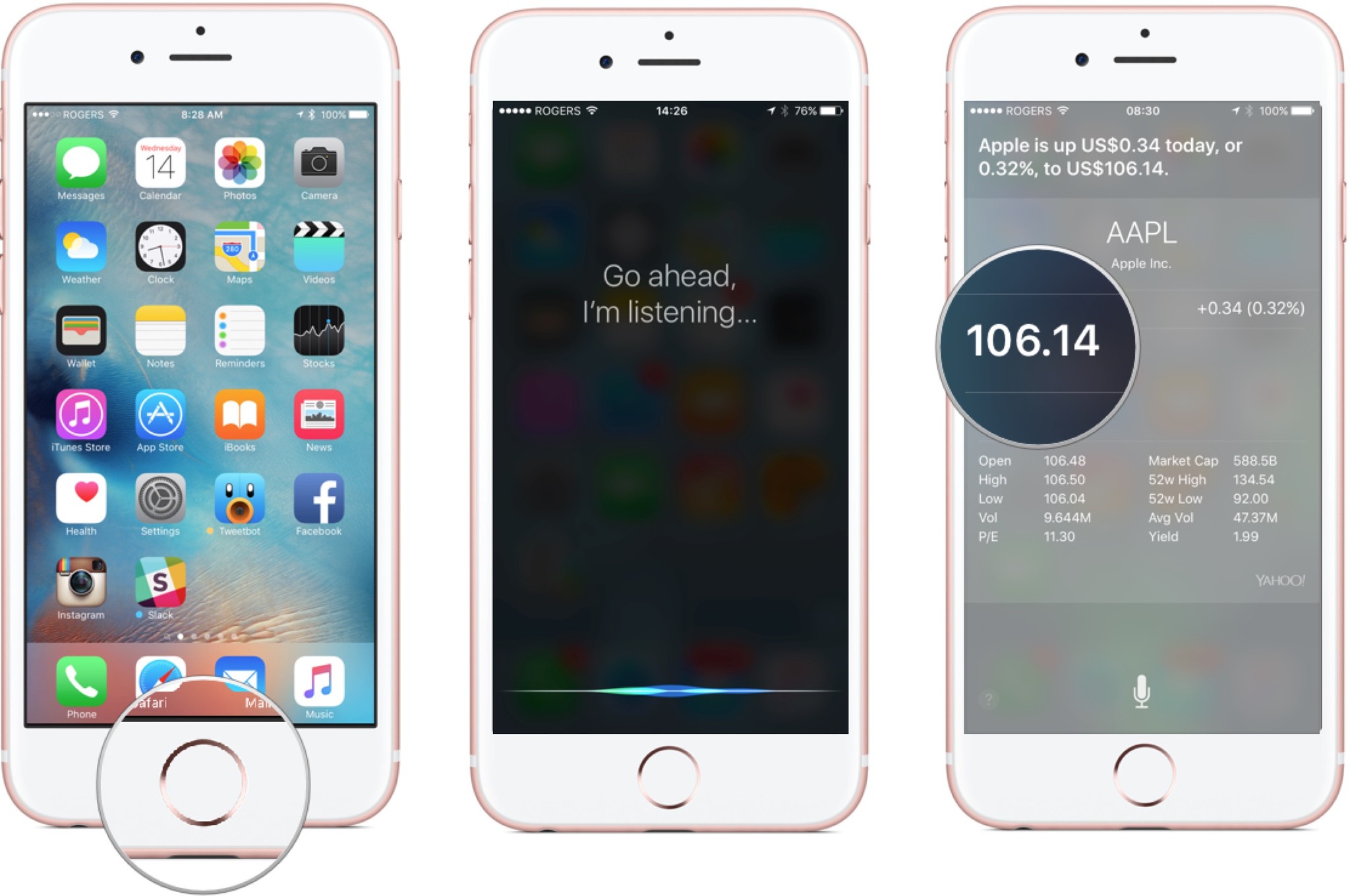
How to check stock exchanges with Siri
Besides giving you information on different stocks, you can also ask Siri for information on an entire exchange, including NASDAQ, NYSE, FTSE, Nikkei, or others.
- Press and hold down the Home button to launch Siri.
- Ask Siri about the exchange you'd like information for by saying something like "What is the New York Stock Exchange's current position?" or "How did NASDAQ close?"
- Siri will then present you with information about that specific exchange. If you want more information, tap on the stock widget and Siri will automatically launch the built-in Stocks app.

The Stocks app on iOS is powered by Yahoo! Finance and is a great way to keep track of the ever-changing rise and fall of the stocks that matter to you. By using the above-mentioned tips you can customize your stock dashboard with only the information that is most relevant to you, or you can use Siri to get updates as you like.
How to delete the Stocks app from your iPhone
iOS 10 lets you delete a bunch of built-in apps, which is great if you're one of the folks who doesn't use the Stocks app (oh, you mean everybody?).
- Tap and hold on the Stocks app icon on the Home Screen until it starts to jiggle.
- Tap the x that appears on the top left corner of the app icon.
- Tap Remove when prompted.
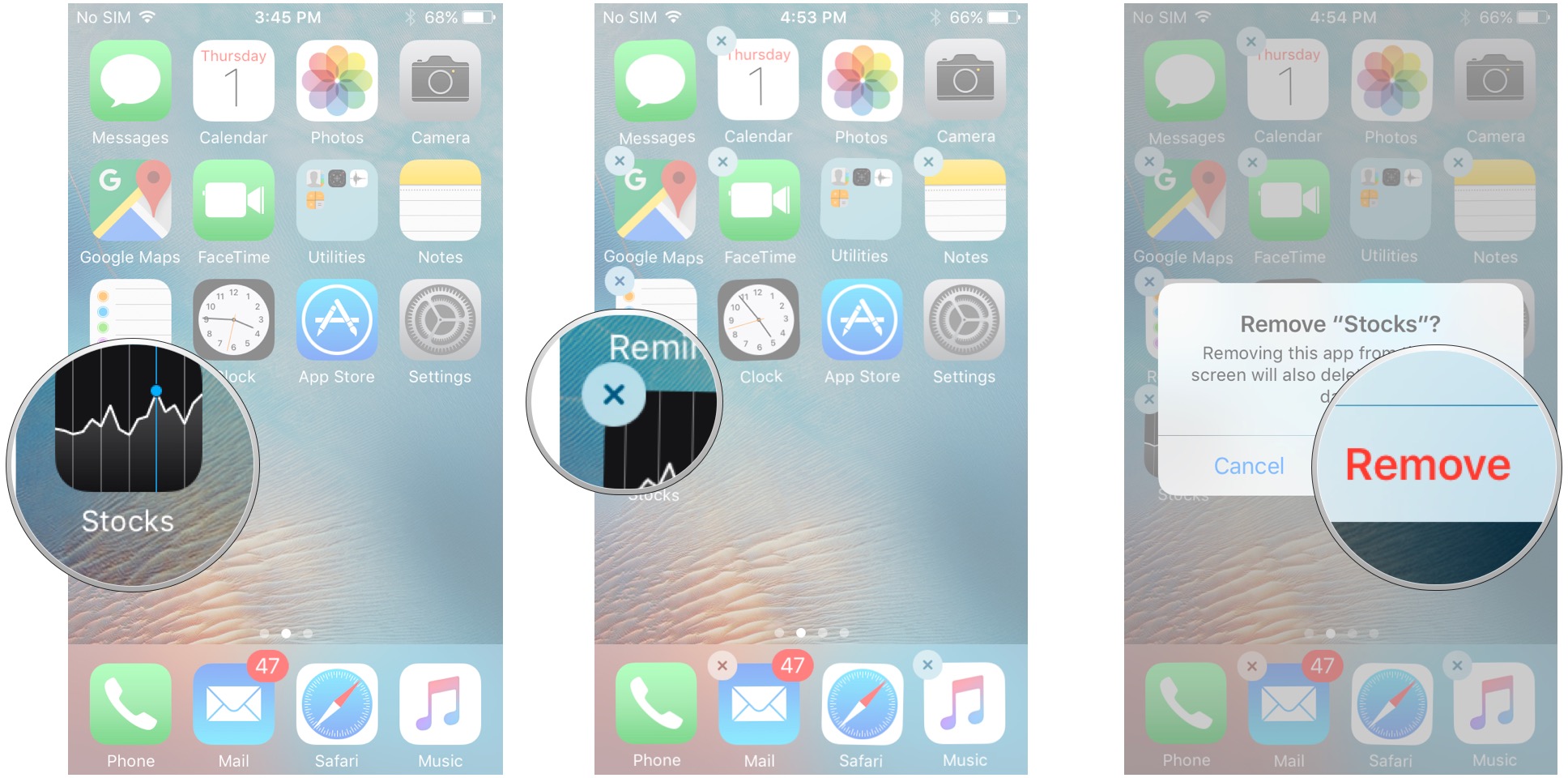
If you ever want Stocks back, you can just download it from the App Store.
How to check business news in the Stocks app
iOS 12 is bringing a refreshed look to the Stocks app, and business and finance news along with it, which you can check right in the app.
- Launch the Stocks app from your Home screen.
- Tap and drag the Business News slider up.
- Tap a story to read more details.
- Drag the slider down when you're finished reading the news.
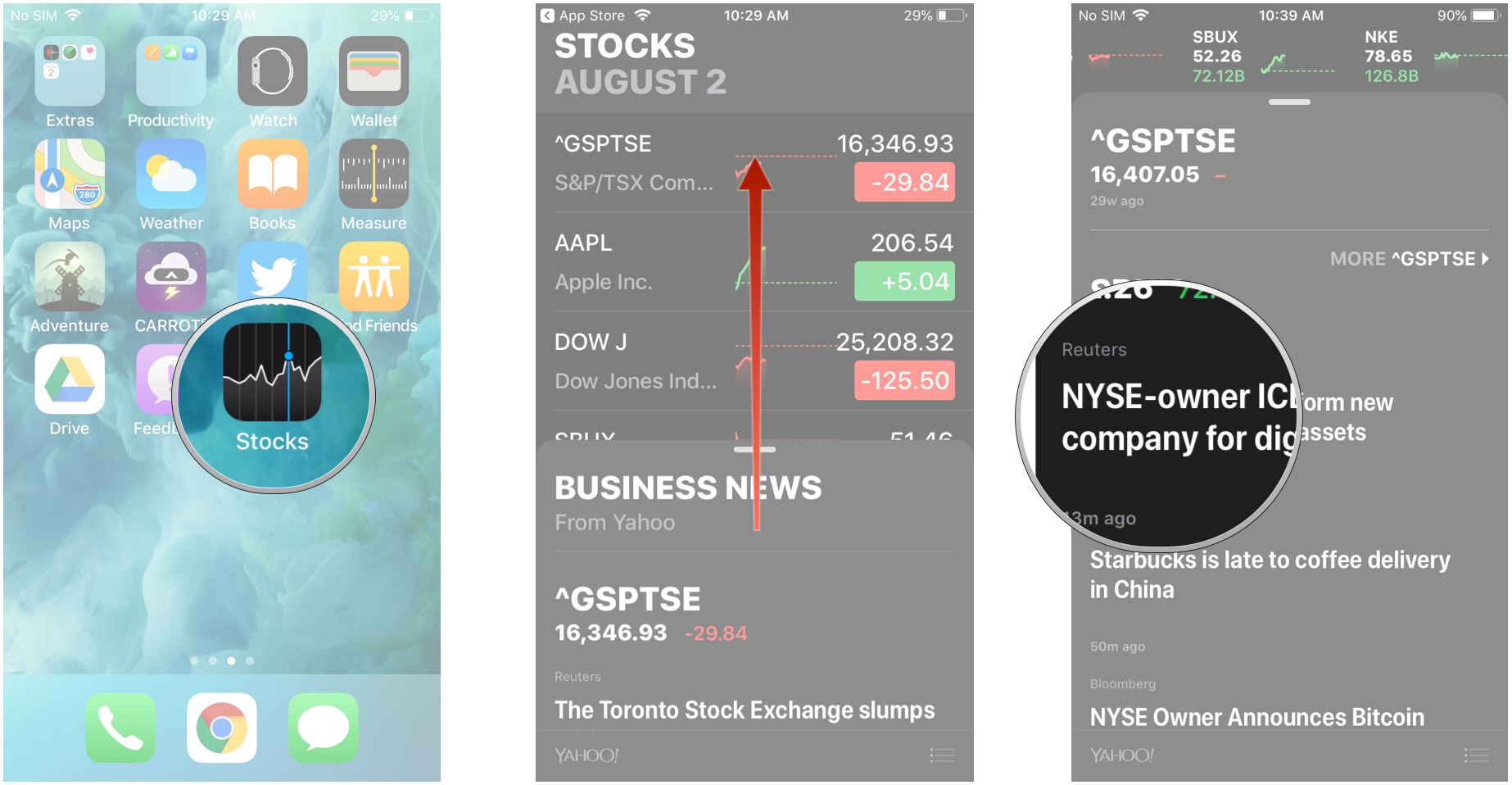
Questions?
Any questions about the Stocks app? Let us know in the comments below!
Updated August 2018: Screenshots and steps updated for the latest version of iOS. Added a section on reading business news in the Stocks app and added a section on viewing stock trends over time.
Mick is a staff writer who's as frugal as they come, so he always does extensive research (much to the exhaustion of his wife) before making a purchase. If it's not worth the price, Mick ain't buying.
